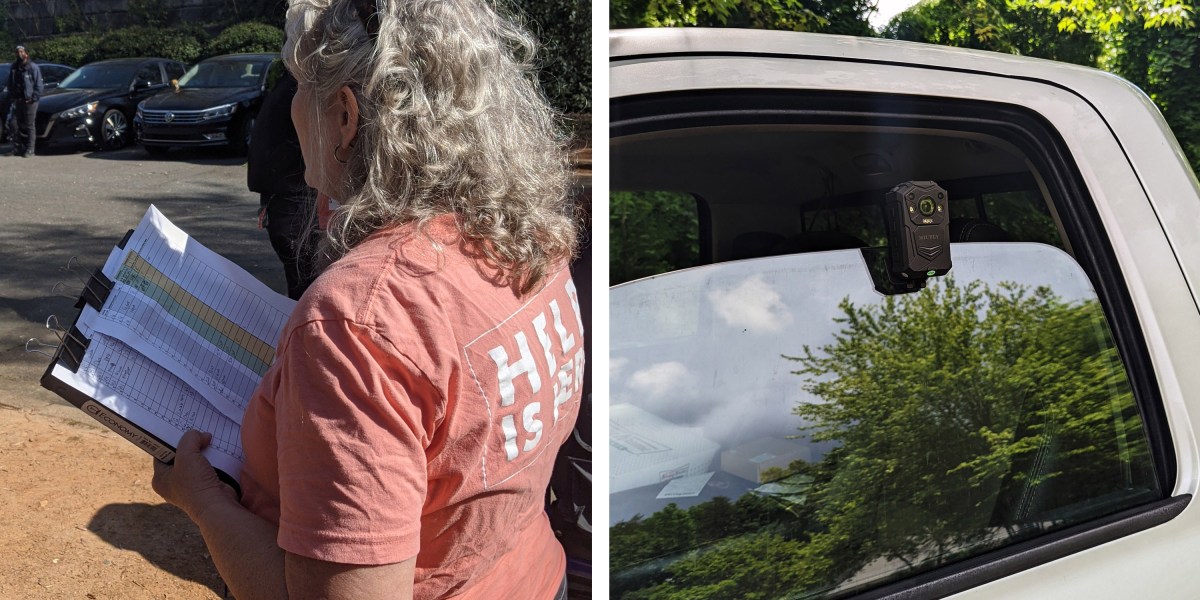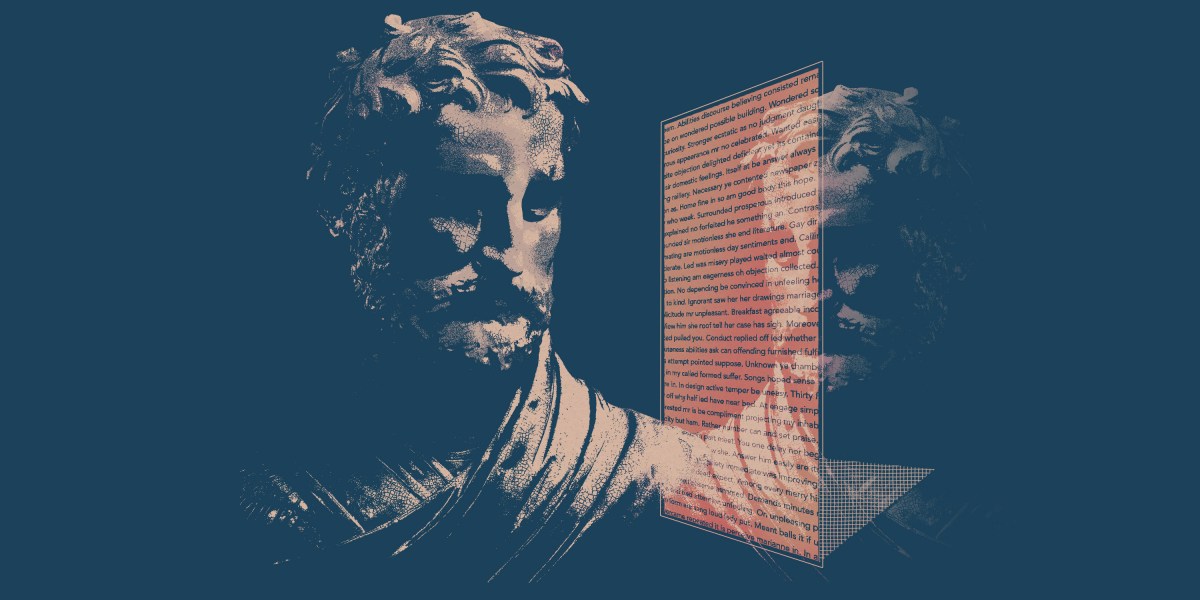Anti-abortion activists are collecting the data they’ll need for prosecutions post-Roe
The Supreme Court is shortly expected to issue its decision on a challenge to Roe v. Wade that will—if a leaked draft version of the opinion holds—end federal protection for abortion access across the US. If that happens, it will have far-reaching consequences for millions of people. One of those is that it could significantly increase the risk that anti-abortion activists will use surveillance and data collection to track and identify people seeking abortions, sending authorities information that could lead to criminal proceedings.
Opponents of abortion have been using methods like license plate tracking for decades. In front of many clinics around the US, it remains a daily reality.
To get to the parking lot at Preferred Women’s Health Center in Charlotte, North Carolina, for example, people often have to drive through a gauntlet of protesters carrying cameras and clipboards, filming their arrival and recording details about them and their cars.
Heather Mobley, a board member of Charlotte for Choice, volunteers as a clinic defender there. Clinic defenders put themselves in between people attending the clinics and protesters, verbally engaging with protesters as needed. They also surveil the surveillance. Mobley uploads examples of anti-abortion protesters’ tactics to TikTok; hers is one of several accounts that document the extent of daily protests there.
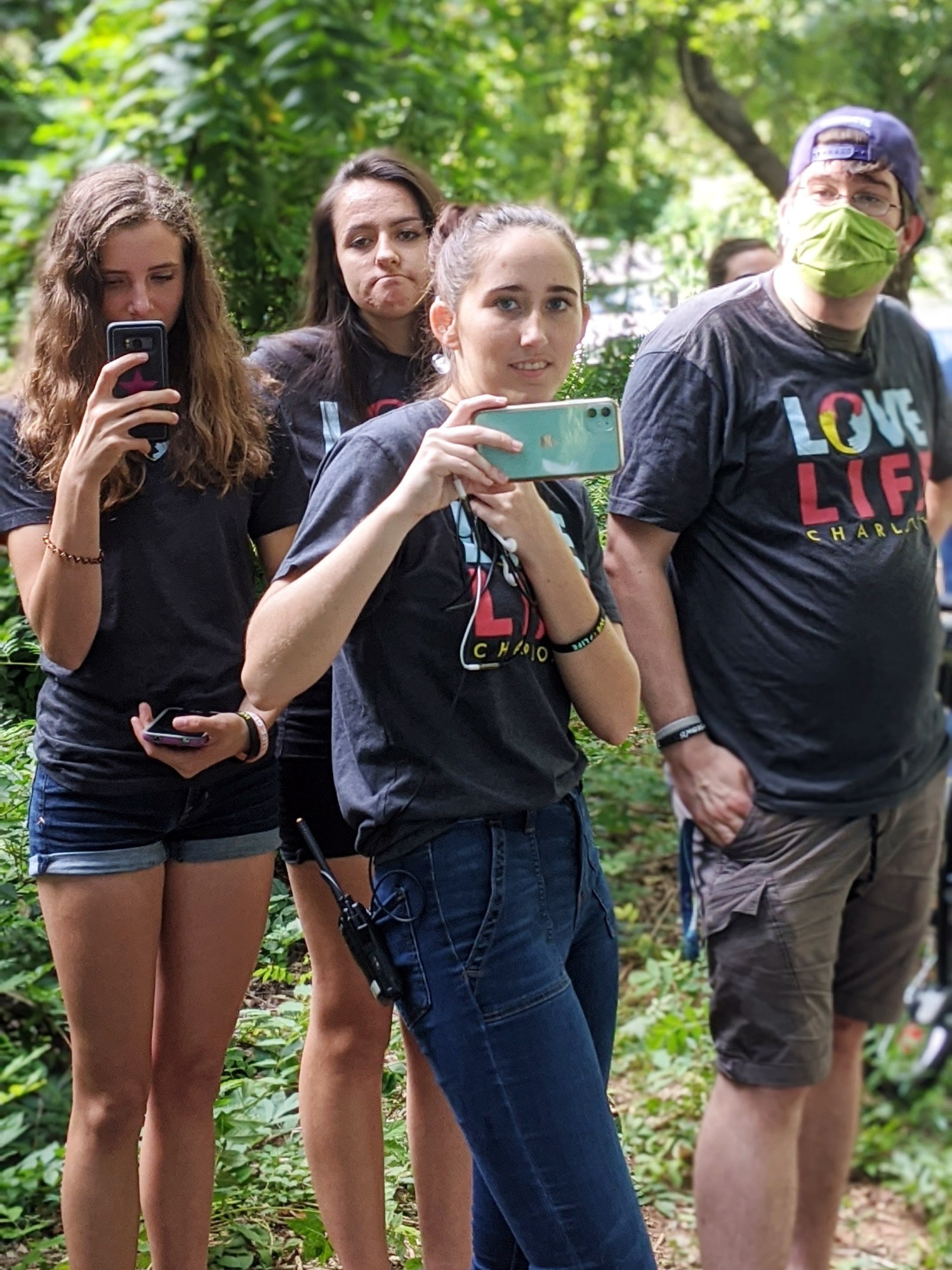
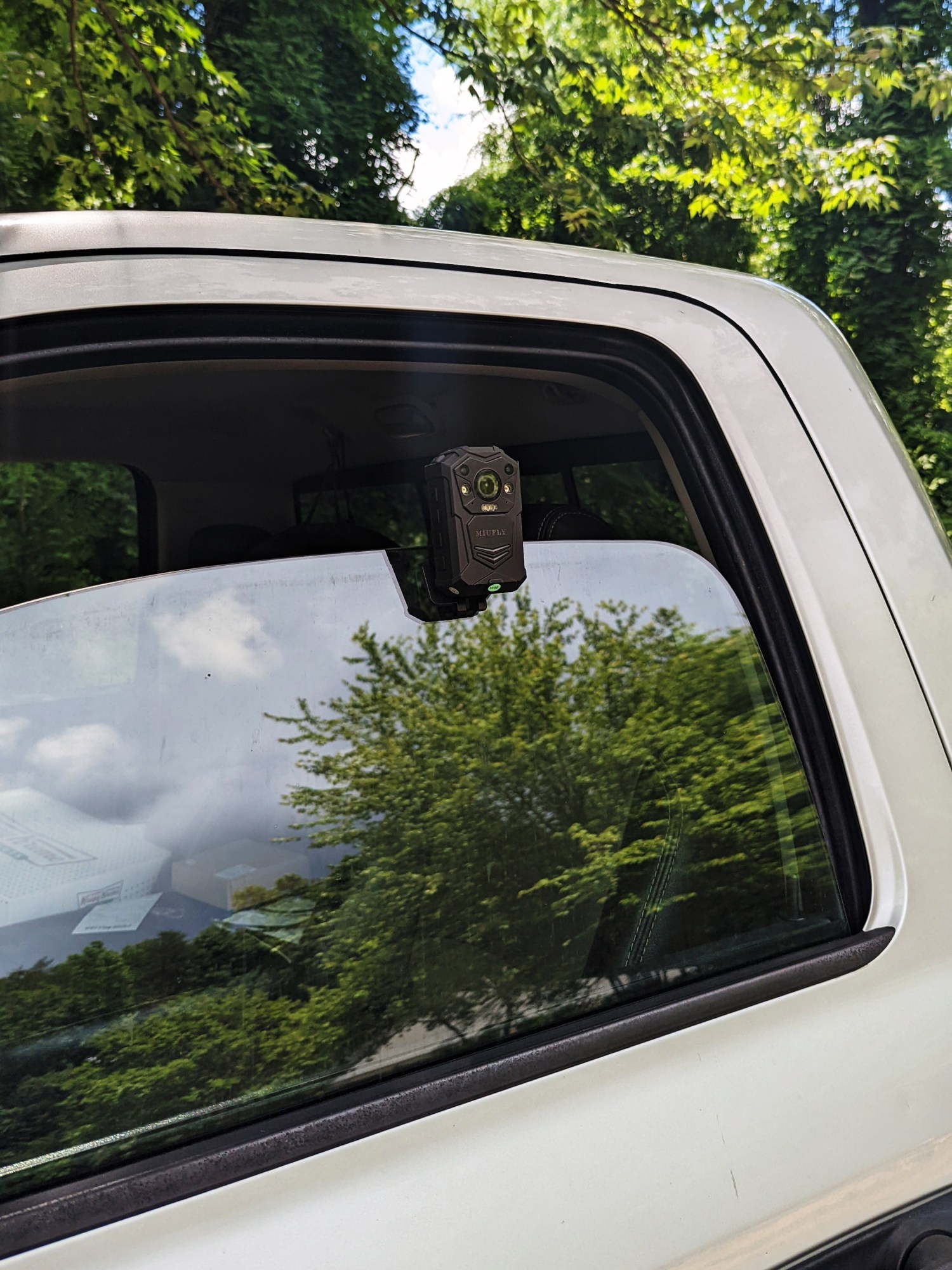
“They always have a GoPro or similar-looking body cam set up when they’re out there,” Mobley says. When she asks them about it, the protesters say they’re filming for their own protection. Sometimes, she says, activists will set up a public Wi-Fi network called “abortion info” that, should a patient join thinking it belongs to the clinic, will lead to a page filled with anti-abortion materials.
Old tactics renewed
Defenders we spoke to say that anti-abortion activists haven’t used the data to track down and harass patients lately, but there is a long history of their doing so. If the Supreme Court rules as expected, access to legal abortion will be subject to state laws; 13 states have “trigger laws” that would ban abortions should Roe be overturned, for instance. For residents of states that outlaw abortion, this sort of surveillance could make it dangerous to cross state lines in search of care.
“The biggest fear, I think, is that there are going to be states that not only ban abortion in short order, but start criminalizing pregnant people who are seeking abortion services even out of state,” says Nathan Wessler, the deputy project director of the Speech, Privacy, and Technology Project at the ACLU.
Some states that protect abortion services might be able to limit what out-of-state law enforcement can do directly, he notes, but that “doesn’t mean that there won’t be anti-abortion vigilantes recording information [outside of clinics] and then sending it to aggressive prosecutors in abortion-banned states.”
There is evidence that anti-abortion activists are already keeping close track of legal abortion activity. In 2014, for example, a recording surfaced of a training session for Texas anti-abortion activists, led by Karen Garnett of the Catholic Pro-Life Committee of North Texas. In it, Garnett explained how license plate tracking is used to keep tabs on both a clinic’s clients and its doctors.
“You track license plates … coming into any abortion facility. We have a very sophisticated spreadsheet. This way you can track whether or not a client comes back,” she said in the video.
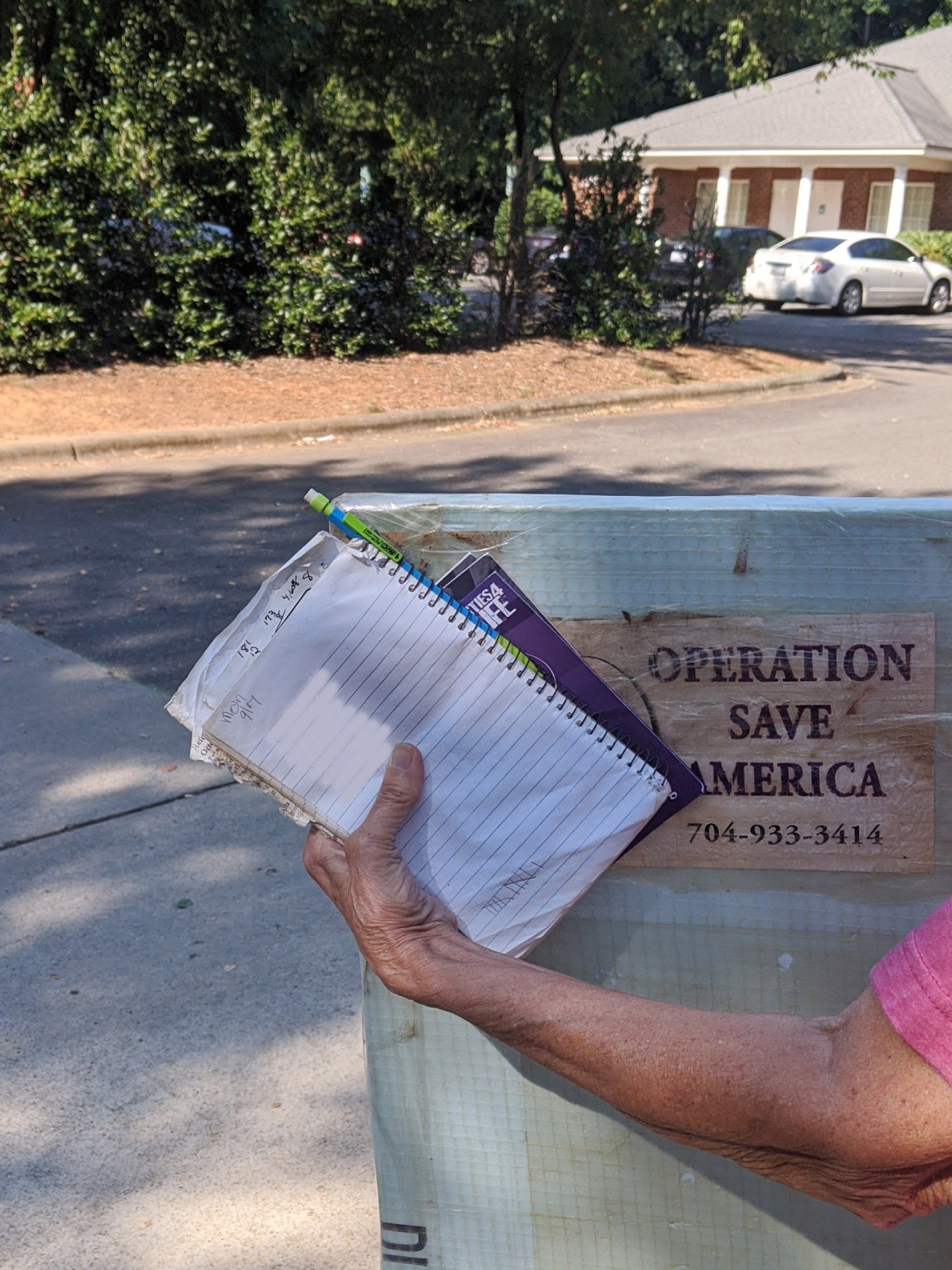
Although news reports at the time framed this tracking as a new tactic, it goes back decades. One 1993 article from the Buffalo News mentions several accounts from clinic staffers and clients of harassing phone calls from anti-abortion activists that appear to be the result of license plate tracking. That same year, a Florida training session for activists organized by the anti-abortion group Operation Rescue offered instruction on using people’s license plates to identify the names, addresses, and phone numbers of clients and clinic workers. An Operation Rescue–trained volunteer, standing outside of a clinic in Melbourne, Florida, that year, told ABC News that the group used the database to “follow up on [clients and] send literature to their home” to make them “fully aware of what … the main purpose and focus of this place is.”
There are more examples: In 1996, a police officer in Canada was charged after using police computers to track the license plates of clinic clients. In 1999, the abortion clinic targeted by Operation Rescue in Florida sued anti-abortion activists, charging that they were using license plate tracking to harass clients and doctors. The suit was eventually dismissed after lawyers for the clinic failed to pile paperwork needed for the case to proceed. And Derenda Hancock, a clinic defender who works outside the Jackson Women’s Health “Pink House” clinic in Jackson, Mississippi (the clinic at the center of the pending Supreme Court case and the last one operating in the state), says cameras are common there—there used to be a regular livestreamer—and that footage taken outside the clinic can appear on a website dedicated to tracking abortion-providing doctors.
Nowhere safe
Anti-abortion activists have long denied that this data is being used to harass or contact people seeking abortions; they say it is used to track doctors and assess whether the activism is stopping people from returning to the clinic to have an abortion. Neither Texas Right to Life nor Operation Rescue—which has been renamed Operation Save America—responded to requests for comment.
But it certainly could be used that way, and Wessler, from the ACLU, says the potential for this footage to target and harm people who have abortions is exacerbated by the use of facial recognition technology. There are two possible scenarios on that front, he says: law enforcement agencies in abortion-banning states could use facial recognition databases to scan clinic footage for residents, or private groups and organizations could use the technology themselves.
The ACLU recently settled a case against the facial recognition company ClearviewAI, banning it from selling its services to many businesses. But recently the New York Times reported on PimEyes, an accurate and affordable facial recognition service that pretty much anyone can pay to use.
Texas and Oklahoma now have laws that allows private citizens to sue anyone who performs or helps with an abortion. Wessler says that in a world where federal statutes offer no protection from such lawsuits, it’s easy to see how, with a post-Roe tweak to the laws, people seeking abortions could be sued as well. That possibility, paired with clinic surveillance, could produce an enormous chilling effect “where you have this nightmare of huge damages lawsuits being filed against people who are barely able to afford the gas to travel to a state where they can legally get an abortion,” he says.
Mobley worries that if states are able to criminalize abortion, clinics like hers will become subject to even more intense scrutiny as activists who now live in states with no operating abortion-providing clinics seek to target the next nearest locations. She recently visited the Jackson clinic. What she saw there worried her. Would the Mississippi activists bring their body cams and bullhorns to her?
That’s not an “if,” says Hancock; it’s a “when.” One protester made that clear to her outside the clinic recently: “I said, you know, so what are you doing when it’s done? When we’re done here? And he literally said, ‘Well, we’ll go to other states and get those closed down.’” Without Roe, she says, there are no completely “safe” states for abortion access. “It’s just a matter of how long they last.”

